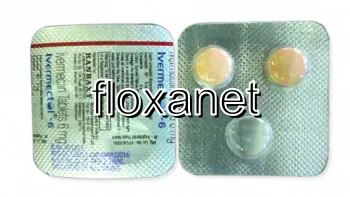| Package | Dosage | Price | Price per Dose | |
|---|---|---|---|---|
| Dosage: 3mg | ||||
| 270 pill | 3mg | £527.77 | £1.95 | |
| 180 pill | 3mg | £370.36 | £2.06 | |
| 120 pill | 3mg | £308.63 | £2.57 | |
| 90 pill | 3mg | £268.51 | £2.98 | |
| 60 pill | 3mg | £194.43 | £3.24 | |
| 40 pill | 3mg | £146.08 | £3.66 | |
| 30 pill | 3mg | £119.33 | £3.97 | |
| 20 pill | 3mg | £85.38 | £4.26 | |
| 10 pill | 3mg | £49.37 | £4.94 | |
| Dosage: 6mg | ||||
| 270 pill | 6mg | £583.32 | £2.16 | |
| 180 pill | 6mg | £435.17 | £2.42 | |
| 120 pill | 6mg | £345.67 | £2.88 | |
| 90 pill | 6mg | £287.03 | £3.19 | |
| 60 pill | 6mg | £216.04 | £3.60 | |
| 40 pill | 6mg | £152.25 | £3.81 | |
| 30 pill | 6mg | £123.45 | £4.12 | |
| 20 pill | 6mg | £86.41 | £4.32 | |
| 10 pill | 6mg | £46.29 | £4.63 | |
| Dosage: 12mg | ||||
| 270 pill | 12mg | £805.54 | £2.98 | |
| 180 pill | 12mg | £574.06 | £3.19 | |
| 120 pill | 12mg | £432.09 | £3.60 | |
| 90 pill | 12mg | £351.84 | £3.91 | |
| 60 pill | 12mg | £246.90 | £4.12 | |
| 40 pill | 12mg | £172.83 | £4.32 | |
| 30 pill | 12mg | £138.88 | £4.63 | |
| 20 pill | 12mg | £98.75 | £4.94 | |
| 10 pill | 12mg | £52.46 | £5.25 | |

Ivermectin Description
Overview of Ivermectin
Ivermectin is a widely used medication that belongs to the class of antiparasitic agents. It has been in medical use for several decades and is recognized for its effectiveness in treating numerous parasitic infections. This drug works by targeting the nervous system of parasites, paralyzing and ultimately eliminating them from the body. Its broad spectrum of activity makes it a valuable tool in both human and veterinary medicine. Many patients rely on Ivermectin for conditions such as scabies, strongyloidiasis, and other parasitic infestations. When used correctly, it has a good safety profile and can significantly improve quality of life for those affected by parasitic diseases.
Mechanism of Action
Ivermectin works by binding to specific receptors in the nervous system of parasites, specifically glutamate-gated chloride channels. This binding increases the permeability of cell membranes to chloride ions, which results in hyperpolarization of nerve and muscle cells. The consequence of this action is paralysis and death of the parasite. Importantly, the drug has minimal effects on human cells at therapy doses because these specific receptors are less prevalent in humans. This selectivity contributes to the drug’s safety when administered in recommended doses.
Uses and Indications
Initially, Ivermectin was primarily used to treat parasitic infections such as onchocerciasis (river blindness) and lymphatic filariasis. Over time, its use expanded to address other infections caused by different parasites, including strongyloidiasis, scabies, and certain lice infestations. In recent years, Ivermectin has gained attention for off-label uses, especially in the context of emerging research and debates. It is important to note that the medication should only be used under medical supervision to ensure it is appropriate for the specific infection and patient history.
Safety and Side Effects
When taken as prescribed, Ivermectin has a generally low incidence of side effects. Common mild reactions include dizziness, nausea, and skin rash. Serious adverse effects are rare but can occur, especially if the medication is used improperly or in high doses. Rarely, some patients may experience neurological symptoms or hypersensitivity reactions. It is crucial for individuals to disclose their full health history before starting treatment. Pregnant and breastfeeding women should consult their healthcare provider due to limited safety data. Proper dosing and adherence to medical guidance are key to minimizing risks associated with Ivermectin.
Availability and Administration
Ivermectin is available in various formulations, including tablets and topical preparations. The dosage depends on the specific condition being treated, the patient's weight, and overall health status. For oral use, it is usually administered as a single dose or a short course, as directed by a healthcare professional. It is essential to follow the prescribed instructions carefully. In some cases, repeated doses may be necessary to fully eradicate the infection. Patients should also be aware of potential interactions with other medications, so it is important to inform the prescribing doctor about all current treatments.
Conclusion
Ivermectin remains a vital medication in the fight against parasitic diseases worldwide. Its proven efficacy and safety profile make it a preferred choice for many infections. As with all medications, proper use under medical guidance is essential to maximize benefits and minimize potential risks. Patients should ensure they understand the correct dosage and timing for their specific condition. Continued research and clinical practice will further clarify its role in medicine and explore new potential uses in the future.
See Also
